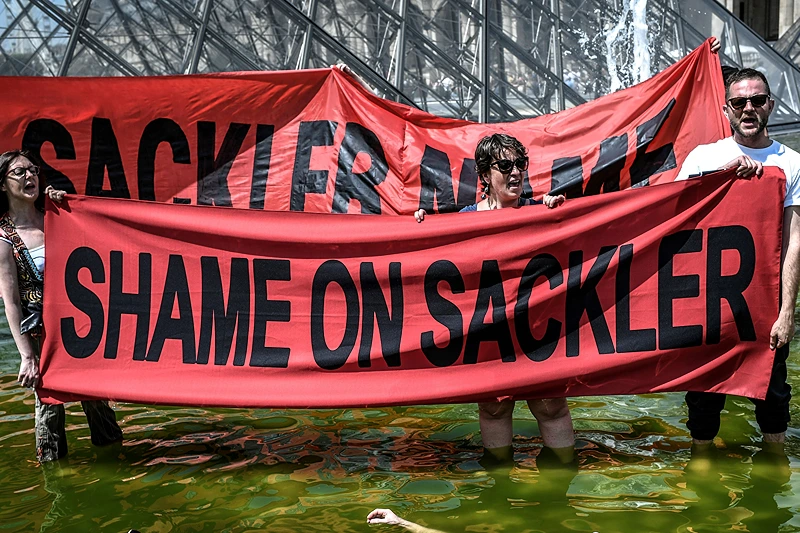
OAN’s Brooke Mallory
11:47 AM – Monday, December 4, 2023
The legitimacy of a nearly $6 billion bankruptcy deal involving Purdue Pharma, the maker of the drug OxyContin, which is blamed for sparking the deadly opioid crisis, will be the subject of arguments before the Supreme Court on Monday morning.
Purdue Pharma’s owners, the Sackler family, have made a $6 billion settlement offer to resolve thousands of claims that accused the company of causing the opioid crisis. If the justices approve the agreement, Purdue would become a charity and commit its billions of dollars to treating addiction and other mental health issues, while the Sackler family owners would no longer be held legally liable.
The terms of the settlement were accepted by a bankruptcy court in 2011, but in September of the same year, the U.S. Trustee Program—a Justice Department watchdog that monitors bankruptcy proceedings—moved to reject the agreement.
“On the most direct level, it will determine whether Chapter 11 is a viable process for settling mass torts,” according to an American Bar Association overview of the case by Anthony Casey, professor at the University of Chicago Law School.
Approximately 60,000 individuals who have filed personal injury claims voted in favor of the settlement agreement, but U.S. Trustee for the Department of Justice (DOJ), William Harrington, objected, claiming that such “nondebtor releases” need the released parties’ unanimous assent.
According to court records, Harrington has further maintained that the deal absolves Sackler family members of responsibility for “alleged wrongdoing in concocting and perpetuating for profit one of the most severe public health crises ever experienced in the United States.”
The Supreme Court in August denied the Stamford, Connecticut-based pharmaceutical company the ability to pursue bankruptcy proceedings, upholding Harrington’s conclusions that the agreement provides “unprecedented” protection against future civil lawsuits.
The possibility that the Sackler family members would be absolved of civil liability also sparked outrage from victims of opioid abuse, and advocacy groups raised awareness about the more than 280,000 people who died in the United States from overdoses involving prescription opioids between 1999 and 2021, according to the CDC.
On Monday morning, activists and supporters of the fight against opioid abuse will assemble outside the Supreme Court to demand that the settlement be overturned on the grounds that it does not adhere to the existing U.S. Bankruptcy Code.
Speaking on behalf of a coalition of organizations raising awareness about opioid consumption, Maya Fitzpatrick said that the settlement is a “stark example of privileges retained by the wealthy to leverage the legal system to their advantage.” The group’s plan is to demonstrate outside the high court.
The majority of lawsuits filed against Purdue and its owners charge them with encouraging the opioid crisis by falsely advertising the painkiller. The business entered a guilty plea to misbranding and fraud related to OxyContin marketing in 2007 and 2020.
The ramifications of this case are extensive, encompassing continuing disagreements about the Boy Scouts of America settlement and possible upcoming cryptocurrency litigation, even though thousands of victims of opioid abuse and their payouts are at stake on Monday.
“If the Court declares a blanket prohibition on nonconsensual nondebtor releases, it could overturn settlements in pending cases like the one involving the Boy Scouts of America and prevent global settlement in future cases,” Casey wrote.
Purdue’s settlement would take effect, and the status quo would be preserved if the high court ruled that the Bankruptcy Code permits nondebtor discharges.
A Purdue lawsuit, according to Casey, “could be expected” to be resolved, leaving plaintiffs to pursue “difficult piecemeal litigation against dispersed, hard-to-reach wrongdoing shareholders.”
The justices are expected to render a decision on this issue by the end of June, and oral arguments are set for 10 a.m.
Stay informed! Receive breaking news blasts directly to your inbox for free. Subscribe here. https://www.oann.com/alerts

